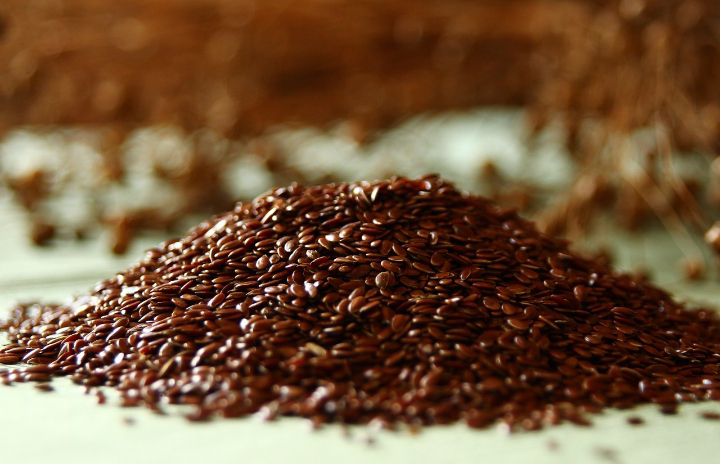Take Care of Your Back Bone
Recently I met someone who was facing pain and discomfort in the backbone but was reconciled to it terming it as an aging issue. But taking care of our backbone, coming out of pain and leading a healthy and pain-free life is essentially important as we age, particularly after the age of 40. The spine plays a crucial role in providing support, stability, and flexibility to your body. Bones provide the necessary support for our daily activities, protect vital organs like the heart and lungs and contribute to the overall functioning and health of the body.
Factors contributing to backbone problems:
It is essential to take care of your backbone after the age of 40 as there can be several factors contributing to bone problems:
Change in Bone Density:
After 40, there can be a gradual decline in bone density that is the amount of bone mineral present in a certain volume of bone tissue. It is a key indicator of bone health. This can lead to conditions like osteoporosis, making your bones more susceptible to fractures, including those in the spine.
Degeneration of disk:
The intervertebral discs that act as cushions between the vertebrae may start to degenerate over time due to wear and tear. This can result in decreased flexibility and increased stiffness.
Posture Matters:
Poor posture can put your spine in additional stress, leading to back pain and discomfort. Taking care to maintain good posture can help prevent such issues.
Muscle Weakness:
As you age, there may be a natural decline in muscle mass and strength. Weak muscles can contribute to poor spinal support and stability resulting in an increased risk of injuries and discomfort.
Nutrients for bone health
Nutrients play a crucial role in maintaining the health of your backbone (spine) and supporting overall bone health. Here are some key nutrients that are important for the spine:
Calcium:
Calcium is a vital mineral for bone health, including the bones in your spine. It helps in the formation and maintenance of bone structure. Good sources of calcium include dairy products, leafy green vegetables, fortified plant-based milk, and nuts.
Vitamin D:
Vitamin D is essential for the absorption of calcium in the body. It helps regulate calcium and phosphorus levels, contributing to bone health. Sun exposure is a natural source of vitamin D, and it can also be obtained from fatty fish, fortified dairy or plant-based milk, and supplements.
Magnesium:
Magnesium is another mineral important for bone health. It helps regulate calcium levels, and magnesium deficiency has been associated with an increased risk of osteoporosis. Magnesium can be found in nuts, seeds, whole grains, leafy green vegetables, and legumes.
Vitamin K:
Vitamin K is involved in bone metabolism and helps in the synthesis of proteins that regulate calcium. Green leafy vegetables, broccoli, Brussels sprouts, and certain oils (such as soybean and canola oil) are good sources of vitamin K.
Phosphorus:
Phosphorus is a mineral that works in conjunction with calcium to build and maintain strong bones and teeth. It is found in a variety of foods, including dairy products, meat, fish, poultry, and nuts.
Vitamin C:
Vitamin C plays a role in collagen synthesis, which is important for the health of connective tissues, including the discs in your spine. Citrus fruits, strawberries, kiwi, and bell peppers are good sources of vitamin C.
Protein:
Protein is crucial for overall bone health as it provides the building blocks for bone tissue. Include lean sources of protein in your diet, such as poultry, fish, beans, tofu, and low-fat dairy products.
Omega-3 Fatty Acids:
Omega-3 fatty acids have anti-inflammatory properties and may contribute to joint and bone health. Fatty fish like salmon, flaxseeds, chia seeds, and walnuts are good sources of omega-3 fatty acids.
Boron:
Boron is a trace mineral that may play a role in bone health by supporting the metabolism of calcium and magnesium. Some nuts like peanuts, fruits like pears, avocados and apples and vegetables contain boron.
Collagen:
While not a nutrient per se, collagen is an essential protein for the connective tissues, including those in the spine. Bone broth, chicken skin, and collagen supplements are sources of collagen.
Taking care of the backbone
A healthy spine is essential for maintaining overall mobility and independence. The spine, also known as the vertebral column or spinal column, is the bony structure that extends along the back of the body. It is composed of individual vertebrae, which are stacked on top of each other, and separated by intervertebral discs. Taking steps to care for your spine can contribute to a more active and fulfilling lifestyle as you age.
To take care of your spine after a certain age of 40, consider incorporating regular exercise, maintaining a healthy weight, practicing good posture, and seeking medical attention for any persistent pain or discomfort required. Follow these pointers to help maintain spinal health:
Maintain Good Posture:
It is important to be mindful of your posture when you are sitting or standing. Sit up straight, with your shoulders back and your back aligned against the back of the chair.
Proper posture helps distribute the forces exerted on the spine more evenly, reducing the risk of strain and injury. When carrying bags or backpacks, distribute the weight evenly across both shoulders. Avoid carrying heavy bags on one side.
Ergonomics at Work:
In simple words, the goal of ergonomics is to design and arrange environments and objects to optimize human well-being, comfort, and overall performance. If you have a desk job, make sure your workstation is ergonomically designed. Use a chair that supports the natural curve of your spine and keeps your feet flat on the floor.
Regular Exercise:
Engage in regular physical activity that includes exercises to strengthen the core muscles. Focus on exercises that promote flexibility, such as yoga and Pilates. But if you're new to exercising or have any existing health conditions, it is better to consult with a healthcare professional or a physical therapist before starting a new exercise routine.
Maintain a Healthy Weight:
Excess weight can put additional strain on the spine. The ideal weight for spine health can vary based on factors such as age, muscle mass, and overall health. Maintain a healthy weight through a balanced diet and regular Exercise is must.
Regular exercise like cardiovascular activities and strength training, is important for maintaining a healthy weight and supporting spine health. Strong core muscles, especially, play a key role in providing stability and support for the spine.
Avoid Prolonged Sitting:
Take breaks if your job requires prolonged periods of sitting. Stand up and move around every 30 minutes if possible, stretch, and walk around to alleviate pressure on your spine. Set a timer or use reminders to prompt you to take breaks. Stretch or walk around to avoid stiffness and promote blood circulation.
Take care while lifting heavy objects:
Following proper lifting techniques is crucial for maintaining spine health and preventing potential injuries. When lifting heavy objects, use your legs rather than your back. Bend at the knees and keep the object close to your body.
Keep your back straight and maintain its natural curve. Avoid rounding or arching your back during the lift. Bend at your hips and knees instead of your waist. This engages the powerful muscles in your legs to assist with the lift.
Staying Hydrated:
Staying hydrated is essential for overall health, and it can also have positive effects on spinal health. The intervertebral discs in the spine are composed of about 80% water, and maintaining adequate hydration is crucial for their function and overall spinal well-being.
Drink enough water to keep your spinal discs adequately hydrated as dehydration can lead to reduced disc height and increased susceptibility to disc degeneration. Pay attention to your body's signals for thirst. If you feel thirsty, it's an indication that your body needs fluids.
Invest in a Good Mattress and Pillow:
A supportive mattress and pillow are crucial for maintaining spinal alignment during sleep. The ideal firmness of a mattress depends on personal preference and individual needs. However, a mattress that is too soft may not provide enough support for the spine, while one that is too firm may create pressure points.
Similarly, the height of the pillow should support the natural curve of your neck and spine. Choose a pillow that keeps your head in a neutral position, not too high or too low.
Manage Stress:
Managing stress is crucial for overall well-being, and it can indirectly contribute to bone health. Chronic stress can contribute to muscle tension and back pain and can have various negative effects on the body, impacting bone density and increasing the risk of bone-related tissues.
Practice stress management techniques such as deep breathing, meditation, or mindfulness. It's important to adopt stress-management practices that resonate with your preferences and fit into your daily life.
Maintain Bone Health:
Ensure an adequate intake of calcium and vitamin D for bone health. This can help prevent conditions like osteoporosis that can affect the spine. It's important to note that a balanced and varied diet, along with regular physical activity, contributes to overall bone health.
Some individuals may benefit from calcium or vitamin D supplements, especially if they are unable to meet their needs through diet alone. Always consult with a healthcare provider before starting any new supplement regimen.
But if you experience persistent back pain or discomfort, seek medical attention promptly.
A healthy spine is closely linked to overall well-being. Chronic back pain and spinal issues can affect your quality of life, mood, and even sleep. Taking care of your spine can contribute to better physical and mental health.
























Comments